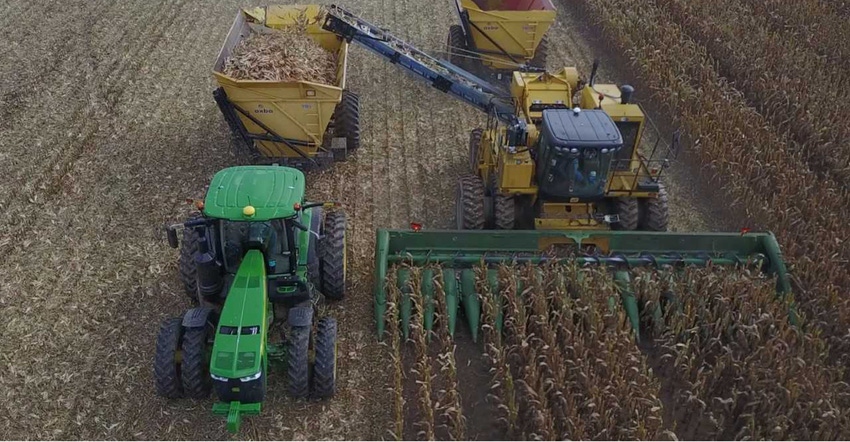December 22, 2017

By Hannah Tucker
Specialty crop production can increase profits, spread economic risk, soften environmental impacts and aid the domestic economy. However, farmers need to carefully plan out every aspect of new crop production to be successful.
Kip Tom, chief executive officer of Tom Farms in Leesburg, Ind., encourages farmers to educate themselves as much as possible before committing to a new specialty crop.
5 keys
There are five main things farmers should do before deciding to diversify, Tom says. Here is his advice, based on his experiences.
1. Find a crop that fits your farm. There’s no such thing as a one-size-fits-all crop, Tom says. Consider things like: your climate and soil; your proximity to buyers and processors; your management skills; and your existing resources, such as equipment and personnel.
Seek help from other producers with experience in the potential crop, Extension specialists and online resources as you consider each of these variables.
2. Develop a marketing plan. Marketing corn and soybeans is relatively straightforward in the Midwest, but growers shouldn’t expect the same from nonstorable specialty crops. Specialty crops usually don’t offer as much market transparency as other commodity crops, Tom says.
Your marketing plan should include current price information, potential delivery points and available sales contracts, he notes. Always know what your maximum risk is with any specialty crop in terms of prices and contract expectations, Tom says.
3. Consider your equipment and infrastructure. Specialty crops often require specialized, expensive equipment that many corn and soybean farmers don’t have access to.
Also, a higher level of documentation is usually required to meet regulatory reporting, Tom says. This can be handled with farm management software, which will also support a better understanding of your real cost of operations and allow you to implement a lean management system, he adds.
4. Do the math. It’s important to understand the small and large impacts a specialty crop will have on your operation. Work out every cost associated with production of the crop you’re considering.
Ask yourself these four questions:
• How will this crop affect my cash flow and tax planning?
• Will I be paying more for specialized labor or training?
• Can I insure this crop?
• How will my USDA Farm Service Agency contracts, base acres and yields for commodity crops be impacted?
5. Focus on the future. Make sure you’re in the specialty crop business for the long haul, Tom says. Keep in mind that specialty crop production may require lifestyle changes and more time away from family. Ask yourself if you can see your business producing this crop 10 or 20 years down the road.
“Be diligent in your research of the potential specialty crop,” Tom says. “Make sure you understand all of the risks and costs associated with producing it and any long-term positive or negative benefits. Additional diligence is needed talking to both producers that are under contract today and producers who used to be under contract for a company but no longer are.”
Specialty crop production can be extremely rewarding, but don’t expect it to be easy. Do your research. Think it through. Consider your options, and talk to others who have experience, he concludes.
Tucker is a senior in ag communication at Purdue University.
You May Also Like




